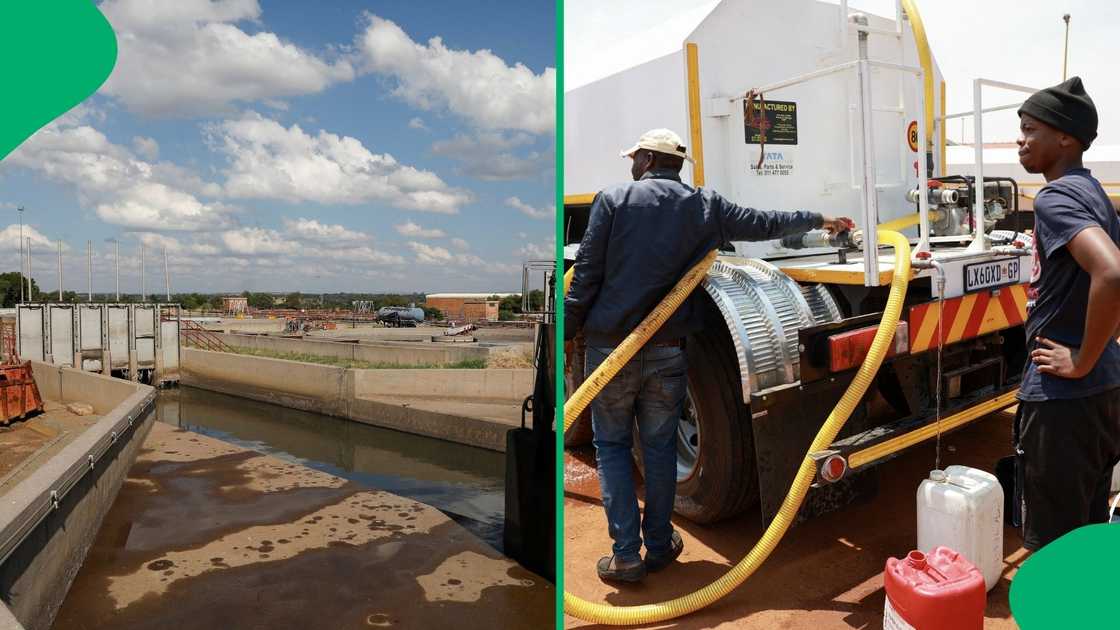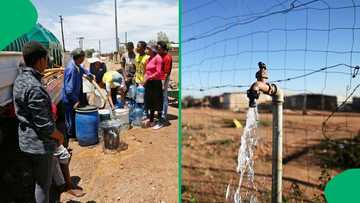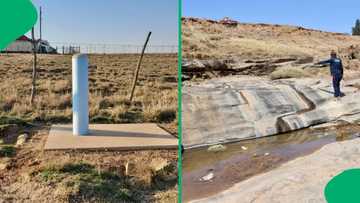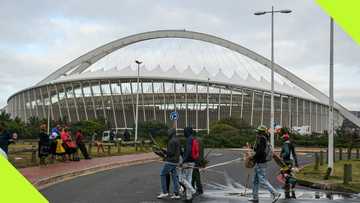South Africa’s Water Crisis: Expert Warns of Looming Day Zero, Gives Advice on How Citizens Can Help
- South Africa is currently experiencing a water crisis as numerous areas experience water restrictions
- Ageing infrastructure, mismanagement of funds, lack of maintenance and climate change are all factors
- Kate Stubb from Interwaste detailed how severe the situation is and how citizens can help fix things
PAY ATTENTION: Got a Minute? Complete Our Quick Survey About Briefly News!

Source: Getty Images
Water is a source of life, but many in South Africa don’t have access to it. Ageing infrastructure, a lack of maintenance to freshwater resources and systems, mismanagement and climate change have all affected the country’s supply.
But how bad is the situation, and is South Africa nearing Day Zero?
A looming major water crisis
Speaking exclusively to Briefly News, Kate Stubbs, the Marketing Director at Interwaste, broke down the threat the country is facing:
PAY ATTENTION: Briefly News Needs Your Help! Take our Survey Now and See Improvements at Briefly.co.za Tomorrow

Read also
Expert offers insight into how effective wastewater management can combat the country's water crisis
“South Africa has had a water challenge for several years, and many believe that the country will face a major water crisis in the coming decade.
“In fact, The National Water and Sanitation Master plan has indicated that the demand for water will exceed the available supply at the planned level of assurance by between 1,6 billion and 2,7 billion cubic metres by 2030."
Stubbs added that by 2024, seven of the country’s 13 major water systems are predicted to be in deficit.
She highlighted that while 2040 is still far off, certain areas of South Africa, like the Eastern Cape, prove that there is no doubt that Day Zero may come sooner than anticipated.
More areas experience water restrictions
While more rural areas and smaller towns are accustomed to either having no water or very little, cities are now experiencing the same thing.
Johannesburg, Durban and Cape Town have all experienced some form of water restrictions in recent weeks, highlighting how dire the situation is becoming.
Many restrictions have been put in place while maintenance is conducted on waterworks nationwide. Ageing infrastructure and mismanagement of funds have contributed to the problem, escalating the need for maintenance.

Read also
Eastern Cape villages left high and dry despite R66 million spent on non-functioning water projects
Safeguard water infrastructure, says department
A clear indication that there is a problem is when the department has to urge people to protect water infrastructure.
Deputy Minister of Water and Sanitation David Mahlobo recently called on residents to safeguard the water infrastructure in their areas to assist the government in ensuring water security.
He made the call after handing over the R130 million Alice Water Treatment and the University of Fort Hare’s Wastewater Treatment Works Expansion Projects.
A call for change
Stubbs said it is now the time for change as the situation worsens.
“Clean water is not a given, and if we want to see real change and preservation, we need to collectively start changing our mindset around water usage. We need to move from an active state of water usage to an active state of preservation instead.”
How South Africans can help
According to Stubbs, there are ways in which ordinary South Africans can play their part.
- Start using refillable bottles and avoid taking single-use plastic bottles to school or work. Single-use plastic takes a lot of water to manufacture, so just drinking from the tap or refilling bottles when needed really does help.
- We can remind those around us to turn off the tap when washing their hands, or they should brush their teeth with the tap closed.
- Be water-wise by reporting any leaks you may see at your work, in your residential area or in your school straight away. Water-wise could also mean using buckets of water when cleaning up, not just running things under a tap or using a hosepipe to clean.
- Start your own compost heap at home, office, or school. The compost can also be used to help the grounds. In fact, did you know that while compost adds fertility to the soil, it also reduces evaporation - reducing the need for frequent watering?
- Don’t pollute water. Recycle your goods at home and office.
- Don’t water your garden between 10am and 4pm in the day, as the sun is too hot and causes water evaporation.
- Where you can choose water-efficient products to use at home like washing machines. Or, if you can, install a rainwater tank at home or in the office, which can collect thousands of litres per year from rain and can be used for toilets, washing and gardening.
- Even just washing your car on your lawn helps, as this water goes into the garden to be reused.
How wastewater can solve South Africa's problems
South Africa's water crisis could be eased if the country implemented effective wastewater management.
That's according to Marketing Director at Interwaste, Kate Stubbs, who explained how wastewater could be the unsung hero.
Briefly News reported that numerous parts of the country are experiencing water restrictions as the threat of Day Zero grows.
PAY ATTENTION: Сheck out news that is picked exactly for YOU - click on “Recommended for you” and enjoy!
Source: Briefly News


